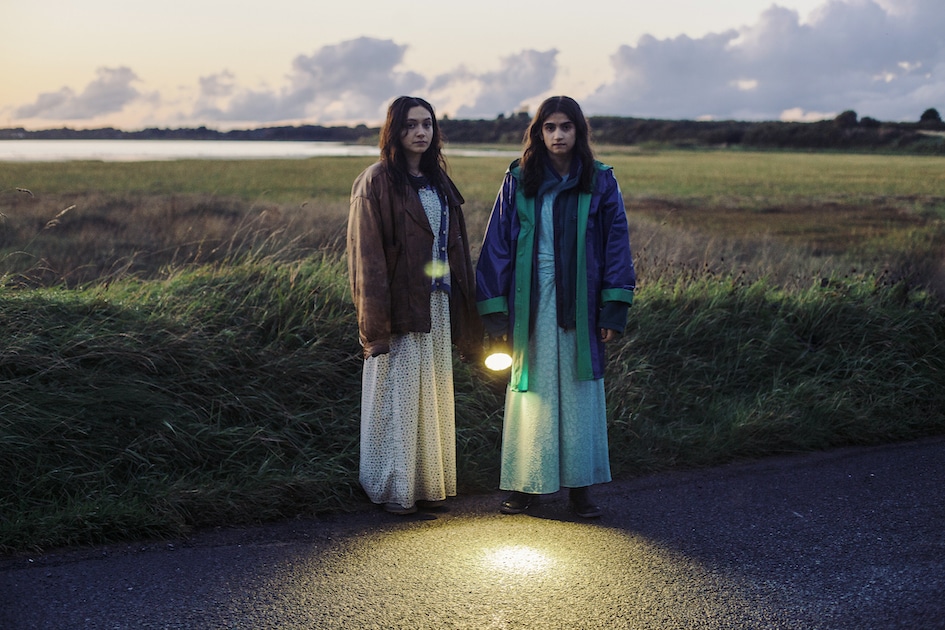
The opening of September Says replicates the famous shot of the twins from Stanley Kubrick’s The Shining. The directorial feature debut from actor Ariane Labed (The Lobster, The Souvenir: Part II)–September Says is a delightfully weird portrait of girlhood in which horror is humorous and humour is horrible.
The film—an adaptation of Sisters, the 2020 novel by Daisy Johnson—tells the story of July (Mia Tharia) and her sister, September (Pascale Kann). July, an awkward, anxious and angular teenager, is dominated by the more charismatic, naughtier and taller September (Pascale Kann). The titular refrain is a game played by the girls, in which September gives her sister instructions that she must adhere to—or else. The pair—ego and id—are suffocatingly co-dependant, and despite the minimal emotional depth, the sisterly dynamic is universally accurate of how intense and ultimately unsustainable certain childhood friendships can be.
Their relationship—which is shown taking place between home and school—is thrown into question when July takes a liking to a boy, Ryan, leaving September behind for once. September Says captures the formation of a female subject, of what it means to enter the animal kingdom of adults: the pair watch Love Island-esque reality TV shows, providing commentary in the way of zoo animal noises. July texts Ryan sat on the loo, first with the door open, her legs crossed girlishly, then with the door closed, as she sends him an illicit video.
Visually, September Says is shot with the playfulness of a picture book. The sisters wear matching blue and green mackintoshes; squash and hair bands are yellow and blue. In one scene September—whose body is buried in the sand—has her hair curled, Medusa-like around her. Labed’s painterly film language (cinematography is by Balthazar Lab) recalls the innovation of early Agnès Varda in films like La Pointe courte and Le Bonheur.
September Says is also a film about being an outsider. In a departure from the novel, Labed’s has cast POC actors in the lead roles. The family travels for a holiday in Ireland—the country of their deceased father. It is here that the girls’ artist mother (Rakhee Thakrar), in a country where she was previously made to feel like an outsider, releases her own tensions, hooking up with a man in a pub and bringing him home. The ensuing scene—shot from the waist up with the mother disassociating in voiceover—is both smart and silly. As the film progresses, the weirdness ramps up, as July’s character works out if co-dependance might be the real fantasy and independence the curse.
People will gratuitously compare Labed’s work to that of her husband, the auteur Yorgos Lanthimos. Whilst there is some evident overlap—the janky, affectless delivery—what Labed has going on, with its rigorously female gaze and sweet sensibility—is really entirely different. September Says, with its humble locations and low-profile actors feels small in scale. But in establishing a visual language, it feels as promising as something like Virgin Suicides was for Sofia Coppola. September Says is a proof of concept for a director who will hopefully go on to greater—but just as whimsical and weird—things.
For more Cannes 2024 coverage, click here.





